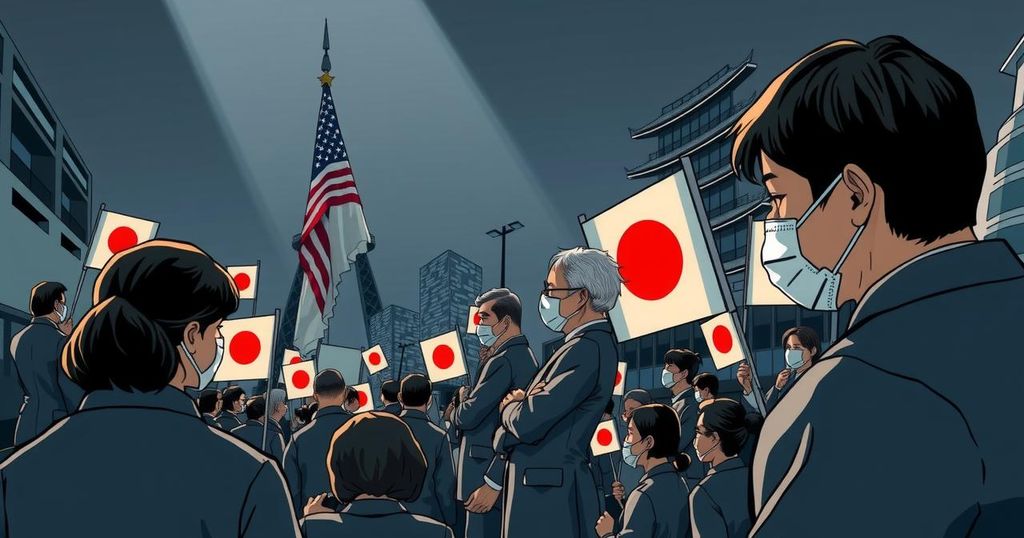Japan’s impending snap election on October 27 reveals deep public discontent with democracy, spotlighting a historical decline in favorability towards the ruling Liberal Democratic Party (LDP) and highlighting a significant portion of the populace who feel disconnected from political parties. Pew Research Center’s recent survey indicates only 30% of Japanese adults view the LDP favorably, while 56% express no allegiance to any political party, suggesting a dire need for political rejuvenation ahead of the elections.
The political landscape in Japan is currently marked by widespread dissatisfaction with democracy as the nation prepares for a snap election scheduled for October 27, 2024. Prime Minister Shigeru Ishiba has called this election amid growing public discontent and a series of scandals that have impacted the ruling Liberal Democratic Party (LDP), which has dominated Japanese politics for nearly 70 years. A recent survey conducted by the Pew Research Center, involving 1,003 Japanese adults during the period from January 5 to March 9, 2024, sheds light on public sentiments regarding the political climate and the state of democracy in Japan. Significantly, only 30% of respondents expressed a favorable view of the LDP, representing a drastic decline from previous years and the lowest rating recorded in seven years of polling. Furthermore, only 29% viewed the main opposition party, the Constitutional Democratic Party (CDP), positively, indicating a general trend of unpopularity among political parties in Japan. Alarmingly, 56% of Japanese adults reported feeling no connection to any political party, a statistic that substantially exceeds findings from comparable surveys conducted in other OECD countries. This low enthusiasm for parties correlates with low voter turnout, as Japan consistently reports one of the lowest participation rates despite having automatic voter registration. Additionally, only about a third of Japanese adults expressed satisfaction with the functioning of democracy in the country, marking a decline that has been evident since 2019. Importantly, those with a favorable view of the LDP demonstrated a higher level of satisfaction compared to those who held unfavorable views (58% vs. 19%). In conclusion, as Japan approaches yet another election cycle, the figures from the Pew Research Center’s analysis illustrate a troubling sentiment among the populace regarding their democratic system and political representation. With a long-standing single party dominating governance, the challenges of declining favorability, widespread indifference toward political affiliation, and low voter engagement will undoubtedly shape the upcoming electoral landscape.
Japan has experienced a unique political dynamic characterized by the near-total dominance of the Liberal Democratic Party (LDP) since its inception in 1955. This party has held the premiership for 65 of the past 69 years, making it an outlier among OECD countries. A recent slush fund scandal has exacerbated public dissatisfaction, compelling the new Prime Minister Shigeru Ishiba to call for a snap election to regain public confidence. Data from the Pew Research Center outlines the current attitudes of Japanese adults towards their democracy and the LDP, providing a crucial context for understanding the country’s political environment ahead of the upcoming election.
The impending snap election in Japan unfolds against a backdrop of considerable public dissatisfaction with both the ruling and opposition parties. The significant drop in the LDP’s favorability, coupled with a majority of the populace feeling unaligned with any political affiliation, signals potential challenges for political engagement in Japan. The forthcoming election will serve as a barometer for the public’s response to ongoing scandals and dissatisfaction, as well as an opportunity for a reassessment of political representation in the country.
Original Source: www.pewresearch.org







